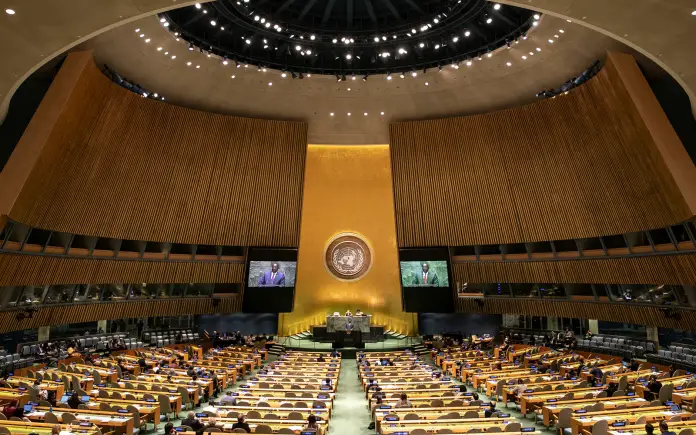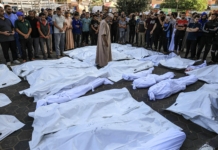The Russian invasion of Ukraine and climate change gained ascendancy over other issues during the first day of the 77th United Nations General Assembly session held in New York.
Many leaders from across the world shared their concerns on various global challenges but Russian invasion of Ukraine remained the hot topic. Many leaders like Japanese PM Fumio Kishida, French president Emmanuel Macron, Spanish Prime Minister Pedro Sanchez, German chancellor Olaf Scholz and Ukraine’s Volodymyr Zelenskyy criticized the Russian invasion.
Zelenskyy, appearing virtually from Ukraine, accused Moscow of deliberately starting the food crisis.
“Any state that provokes famine, which tries to make access to food a privilege that, tries to make the protection of nations from famine dependent on […] the mercy of some dictator — such a state must get the toughest reaction from the world,” Zelenskyy said.
Volodymyr also called out Russia for blocking Ukrainian ports, which caused the interruption of exports the nation is facing, as Ukraine normally is a significant agricultural producer.
“Russia must take responsibility for this,” he said.
According to the report, Japanese PM also expressed his disappointment over how the institution responded to the Ukraine situation.
Kishida said, “The foundation of the international order is violently shaken right now,” implying that UN impact is fading off.
Moreover, French President Emmanuel Macron also urged the international community to not stay silent or neutral and condemn the invasion as much as possible. He stated that this war amounted to a new type of imperialism.
Spanish Prime Minister Pedro Sanchez also said that Putin was “trying to blackmail the international community with food” through the Ukraine invasion. German Chancellor Olaf Scholz called it an act of “imperialism plain and simple” in his speech.
Meanwhile, Philippine President Ferdinand Marcos Jr. and his Marshall Island counterpart David Kabua urged the core states to take responsibility for countries affected by climate change.
“The effects of climate change are uneven and reflect a historical injustice: Those who are least responsible suffer the most,” Marcos said. “This injustice must be corrected and those who need to do more must act now,” he added.
Kabua also pleaded for global leaders to vastly increase their investment in renewable energy sources while reducing their reliance on fossil fuels.








Comments are closed.